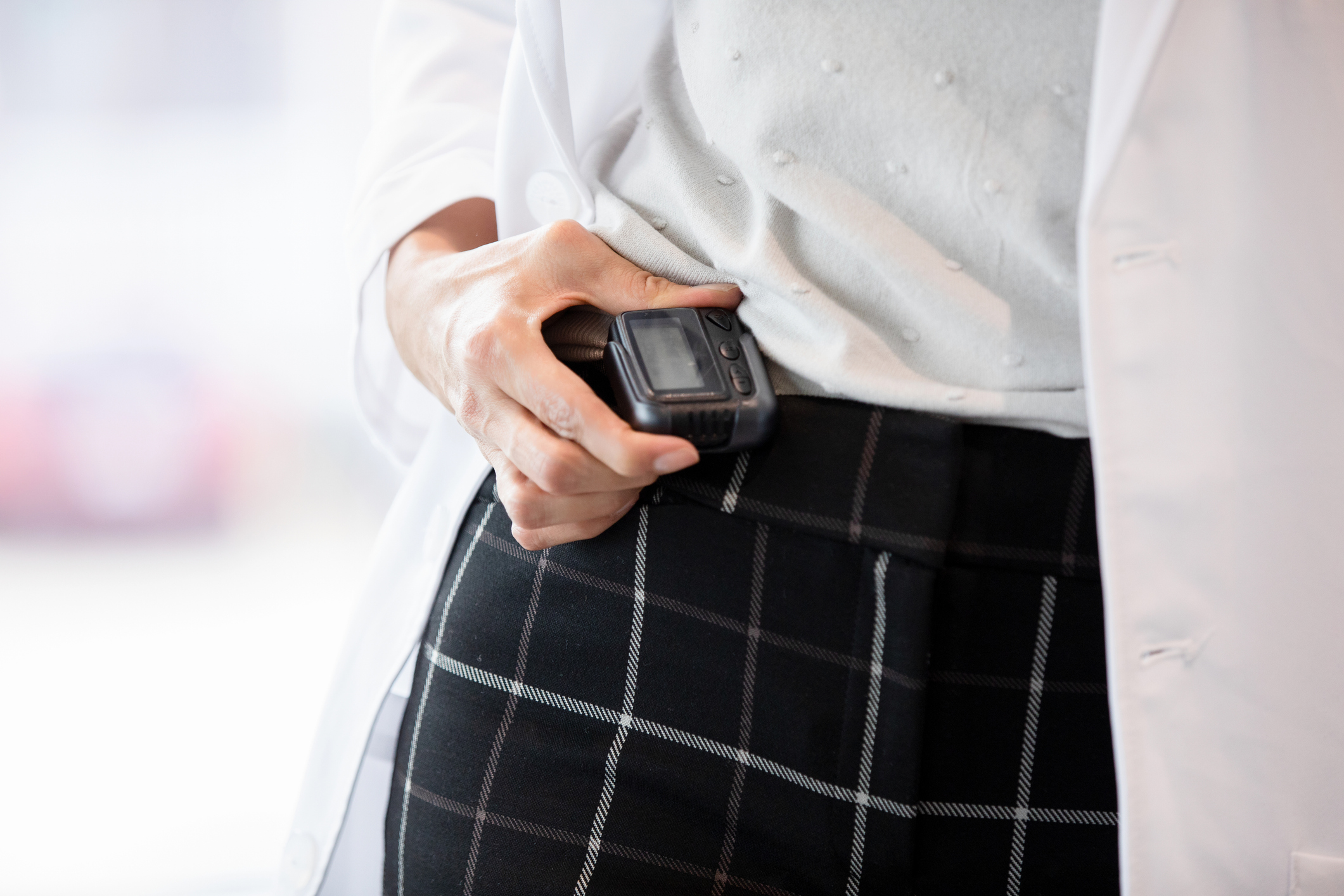Fact or Fiction: Is Your Messaging App HIPAA‑Compliant?

For modern healthcare providers, instant messaging has become an essential tool for seamless collaboration in clinical settings. Real-time texting platforms streamline communication by offering swift context-sharing among team members, saving critical time and reducing disruptions in busy schedules.
However, the healthcare industry operates within strict parameters for safeguarding protected health information (PHI) as set by the Health Insurance Portability and Accountability Act (HIPAA). Non-compliance with these regulations carries significant consequences, including substantial fines, jeopardizing patient privacy, and eroding trust.
You might find yourself asking: Is my messaging app HIPAA-compliant?
Below, we’ll discuss the requirements of HIPAA compliance as it relates to secure messaging, highlighting numerous commonly-used messaging platforms — from WhatsApp, SMS, Signal, and Slack — and their alignment with the stringent requirements of HIPAA. We’ll also explore HIPAA-compliant messaging platforms to consider to ensure your organization is protected.
What Does HIPAA Compliance Require?
HIPPA was created to ensure the confidentiality, security, and integrity around the use and disclosure of individuals' protected health information (PHI). Organizations subject to HIPAA compliance are considered “covered entities” while entities involved in protecting PHI on behalf of covered entities are called “business associates” (BA).
Organizations that use technology to store, collect, or share PHI must comply with HIPAA’s Security Rule. This rule outlines administrative, physical, and technical safeguards that both covered entities and business associates must implement to protect electronic protected health information (ePHI).
Administrative safeguards
These safeguards are the policies, procedures, and processes that guide how an organization manages security measures.
Administrative requirements include:
- Security Management Process: This requires entities to conduct risk analyses and implement measures to reduce risks and vulnerabilities.
- Assigned Security Responsibility: Organizations must designate a security official, such as a Security or Privacy Officer, who is responsible for developing and implementing policies.
- Workforce Security: This requirement ensures staff only have appropriate access to ePHI and that access is terminated if they’re no longer employed at the organization. This can be achieved with role-based access controls and onboarding or offboarding processes.
- Information Access Management: Entities must implement policies that authorize, establish, and modify user access rights.
- Security Awareness and Training: Entities must provide ongoing security training, updates, and reminders for staff. This can include sessions on patient privacy regulations, password management workshops or communication platform training, for example.
- Security Incident Procedures: Entities must implement processes for reporting, documenting, and addressing security incidents such as data breaches.
- Contingency Plan: Entities must establish data backup, disaster recovery, and emergency mode operation plans to maintain ePHI availability.
- Evaluation: Organizations must regularly review technical and non-technical security measures for effectiveness.
- Business Associate Agreements (BAAs): Ensure vendors and partners handling ePHI agree in writing to comply with HIPAA safeguards.
Physical safeguards
The Security Rule also focuses on the physical access to ePHI and outlines it with the following requirements:
- Facility Access and Control: Entities must implement policies and procedures to limit physical access to electronic information systems and facilities that house those systems (e.g., physical access to servers and network closets).
- Workstation Use and Security: Entities must implement policies and procedures to specify proper use of, and physical safeguards for, workstations that can access ePHI
- Device and Media Controls: This requirement addresses how organizations handle physical devices that may contain ePHI. For example, if secure messages containing PHI are stored on a clinician’s phone or laptop, HIPAA requires policies for what happens if that device is lost, stolen, or retired.
Technical safeguards
The technical safeguards are in place to protect who has access to PHI and to help prevent potential data breaches. These safeguards include:
- Access Controls: Entities must have procedures for access management. This can include requiring unique user IDs, establishing emergency access procedures, and automatic log off features.
- Audit Controls: This standard requires entities to implement procedures to record and examine activity in systems containing ePHI. This can be achieved by using a platform that offers audit trails.
- Integrity Controls: Entities must have mechanisms to ensure ePHI is not altered or destroyed in an unauthorized manner.
- Person or Entity Authentication: This standard requires entities to have procedures to verify that those accessing ePHI are who they claim to be. This can be done using passwords, biometrics, or multifactor authentication.
- Transmission Security: Entities must protect ePHI transmitted over networks via end-to-end encryption and integrity controls.
Why most consumer apps fall short
Consumer messaging apps are designed for convenience and personal use, but they often fail to meet HIPAA’s required safeguards.
For example, HIPAA requires any entity handling PHI to sign a BAA, but many consumer apps don’t provide this option. Without signing a BAA, any use of PHI on those platforms is automatically non-compliant. Additionally, many consumer apps don’t include adequate encryption, which is another key compliance requirement.
Without administrative controls, signed agreements, and granular technical safeguards, consumer messaging apps may leave healthcare organizations exposed to compliance violations, data breaches, and fines.
Why HIPAA Compliance Matters in Healthcare
The primary reason why compliance matters in healthcare is to protect patient data and trust. With the sheer amount of personal data being exchanged across numerous technology channels, patients may be understandably wary of providing sensitive information to begin with. Breaches of PHI can undermine the trust between patients and providers and can have a long-lasting impact on a healthcare organization’s reputation.
Violating HIPAA laws can also expose organizations to substantial financial risks. HIPAA penalties cost upwards of $50,000 per violation, which can add up quickly if compliance issues go unnoticed and aren’t addressed in a timely manner.
In order to be HIPAA-compliant, messaging platforms require a comprehensive set of security measures, including encryption, stringent access controls, secure storage solutions for sensitive data, and clear privacy policies.
Popular Messaging Apps: Are They HIPAA Compliant?
Research has found that 85% of physicians and nurses own smartphones and 80% exchange text messages related to patient care. Without a secure messaging platform established, clinical teams may turn to consumer messaging apps and potentially put your organization at risk of non-compliance.
To ensure that your organization isn’t violating HIPAA laws, it’s critical to determine whether the consumer messaging apps clinical teams may be using are actually compliant.
Is WhatsApp HIPAA Compliant?
Short answer: No.
Long answer: According to The HIPAA Journal, WhatsApp is not HIPAA compliant because it lacks features like access termination, audit trails, or the ability to sign BAAs. While the platform does incorporate encryption, which provides a level of data protection, it falls short in these other crucial aspects required for handling PHI securely.
Is SMS HIPAA Compliant?
Short answer: No.
Long answer: While SMS texting offers convenient and familiar communication, standard SMS lacks encryption, leaving PHI vulnerable to interception during transmission. Additionally, SMS providers often retain copies of messages on servers, raising concerns about data storage security. These elements make SMS non-compliant for healthcare providers using it to exchange PHI.
Is Signal HIPAA Compliant?
Short answer: No.
Long answer: Signal has a reputation for prioritizing user privacy and offering robust encryption. However, while the platform provides a strong foundation for privacy and security, Signal is not HIPAA compliant as it does not offer the ability to sign a BAA and it lacks administrative and activity monitoring safeguards.
Is Telegram HIPAA Compliant?
Short answer: No.
Long answer: While Telegram is known for its heavily encrypted messages that self-destruct – and it allows for large group chats – it does not offer a BAA and it lacks enterprise controls. Ultimately, Telegram is not HIPAA compliant as it’s not designed for healthcare.
Is Zoom HIPAA Compliant?
Short answer: Yes, under certain circumstances.
Long answer: Zoom can be HIPAA-compliant under the Zoom for Healthcare subscription. This plan allows users to enter a BAA with Zoom. If a BAA is signed and the platform is correctly configured with encryption and access controls, then Zoom can be healthcare compliant.
Is Microsoft Teams HIPAA Compliant?
Short answer: Yes, under certain circumstances.
Long answer: Compliance depends on proper configuration. According to The HIPAA Journal, Microsoft Teams can be HIPAA compliant if organizations subscribe to a Microsoft Business plan, sign a BAA, and configure identity and access controls.
Is Slack HIPAA Compliant?
Short answer: Yes, under certain circumstances.
Long answer: Slack can be HIPAA compliant only when organizations subscribe to the Enterprise Grid plan, sign a BAA, and restrict usage. Slack warns that PHI should not be shared with patients, additional data‑loss prevention tools are necessary, and organizations are responsible for monitoring members’ use of the platform.
Is Google Chat HIPAA Compliant?
Short answer: Yes, when a BAA is signed.
Long answer: Google Chat is a functionality under Google Workspace, which can support HIPAA compliance. Google states that customers who are subject to HIPAA and want to use Google Workspace services with PHI must sign a BAA with Google.
Is FaceTime HIPAA Compliant?
Short answer: No.
Long answer: FaceTime is a service of Apple, which has stated that it does not execute BAAs for healthcare. However, Apple does say that communications on FaceTime are protected by end-to-end encryption and access controls are in place via Apple IDs. These security measures make FaceTime somewhat compliant, but its lack of BAA makes it unsuitable for healthcare entities.
Is Facebook Messenger HIPAA Compliant?
Short answer: No.
Long answer: According to The HIPAA Journal, Facebook Messenger is not HIPAA compliant because its parent company, Meta does not offer signed BAAs and the messaging app lacks administrative controls. Additionally, while it does offer security measures such as encryption and automatic logoff, these aren’t default settings. Ultimately, Facebook Messenger is not suitable for sharing PHI which makes it non-compliant.
HIPAA‑Compliant Messaging Apps to Consider
To eliminate any doubt and ensure full compliance, healthcare organizations should consider specialized HIPAA-compliant messaging platforms that prioritize data security, encryption, and regulatory adherence.
These platforms are specifically designed as clinical communication apps. Built for healthcare, these tools ensure the confidentiality and integrity of PHI while facilitating efficient communication among healthcare professionals.
1. Hypercare
Hypercare is a HIPAA-compliant secure messaging platform with intuitive features designed for clinical workflows such as delivery and read receipts, backup delegation, and templated messages. The secure messaging also enables file sharing so clinical teams can securely share photos, videos, and attachments for faster decision making. These files are stored separately from other files and apps, which prevents inadvertent privacy breaches.
Beyond maintaining paramount standards of privacy and security for patient data, Hypercare offers a clean, user-friendly platform for enhanced healthcare communication. Accessible across both mobile and desktop interfaces, Hypercare enables healthcare providers to collaborate more effectively and efficiently on patient updates.
2. Spok
Spok is another HIPAA-compliant secure messaging platform to consider. Spok was designed specifically for switchboard operators. Its secure messaging solution offers a convenient way to connect pagers and mobile devices if your organization relies on traditional paging and answering systems.
3. Cerner CareAware
Cerner CareAware (Oracle Health) connects medical device data to electronic health records (EHR). It often relies on third-party or EHR-based scheduling tools that are focused on shift scheduling. The platform offers limited clinical communication tools, including secure messaging and escalation management.
How to Evaluate Messaging Vendors: A Compliance Checklist
When evaluating potential messaging platforms for clinical use, review the following qualifications with the vendor to ensure the platform meets compliance requirements:
- Business Associated Agreements (BAA): Ask if the vendor provides a BAA or has signed a BAA with any third-party providers it uses, such as cloud services.
- Encryption: Confirm the platform uses adequate encryption to ensure messages are protected from unauthorized access at rest and in transit.
- Audit trails: Confirm the platform uses audit logs that detail who accessed what data and when.
- Access controls: Confirm that the platform offers measures to ensure identity and access management, such as automatic logoff.
- Integrations: Platforms that offer integrations make it easier to create a seamless clinical workflow.
- Pricing and support: evaluating a platform’s price is essential to determine if it’s the right fit for your organization. Additionally, having access to hands-on training and ongoing support can help increase platform adoption with clinical teams.
For a deeper dive into vendor assessment, use Hypercare’s vendor evaluation assessment checklist.
Why Hypercare Stands Out as a HIPAA Compliant Platform
With Hypercare, healthcare teams don’t have to worry about whether or not their communication channels are compliant. Hypercare has implemented the administrative, physical, and technical safeguards required by HIPAA.
Additionally, Hypercare’s unified platform – which includes compliant secure messaging, code team activation, contact directory, and on-call scheduling – offers security through administrative controls, BAAs, and audit trails.
Hospitals that have implemented Hypercare’s secure messaging have seen significant results, such as reducing code activation times to five seconds using real-time messaging. One hospital even began using Hypercare as its primary communication tool for consults, preferring secure messaging over phone calls, and noting the ease at which physicians could securely share images and results directly from their phones.
Guarantee HIPAA Compliance With Hypercare
Relying on consumer messaging apps for clinical communication may feel convenient, but it exposes healthcare organizations to serious risks — from regulatory fines to data breaches that compromise patient trust. Consumer messaging tools don’t offer the administrative and technical safeguards that HIPAA demands, such as BAAs, user management, audit trails, and comprehensive encryption.
HIPAA-compliant platforms like Hypercare ensure that sensitive patient information is handled securely, while also supporting efficiency and accountability across care teams.
If your organization is still using non-compliant apps, now is the time to reassess. Evaluating your current communication tools against HIPAA’s safeguards can reveal critical gaps. Choosing a secure, compliant platform such as Hypercare will not only reduce risk but also strengthen your ability to deliver safe, coordinated patient care. Book a demo to learn more about implementing Hypercare’s HIPAA-compliant messaging at your clinical organization.
Read more of our posts

Feb 19, 2026 • 5 min read
Moving Beyond Pagers: Modernizing Emergency Code Communication
Across many healthcare facilities today, code teams are still being activated through legacy pager systems. These systems, while ubiquitous, create preventable delays, coordination failures, and missed responses. The shift to modern, interoperable code activation tools is no longer optional. Healthcare organizations relying on outdated pager infrastructure are putting patients at unnecessary risk while creating operational inefficiencies that burden clinical teams.

Feb 19, 2026 · 5 min read
Do hospitals still use pagers in 2026?
For decades, hospital pagers were synonymous with healthcare communication. The distinctive beep signaled urgent messages, code activations, and critical patient updates across hospital floors. These devices became so embedded in clinical culture that they seemed irreplaceable. But in 2026, do hospitals still use pagers? What was once essential infrastructure is now a source of delays, inefficiencies, and patient safety risks. While some facilities still maintain pager systems, the majority of modern hospitals are actively phasing them out in favor of modern clinical communication platforms that address the complex, fast-paced demands of contemporary healthcare.

Jan 22, 2026 • 4 min read
Why Every Second Matters in Hospital Emergency Code Activations
In cardiac arrest, stroke, trauma, and other emergency scenarios, every second directly affects survival. Yet most hospitals lose critical time to outdated, manual code activation workflows – and worse, don’t realize it. Despite this, many hospitals continue to rely on fragmented communication systems that introduce hidden delays at every step of the emergency response chain. This article explores why time-critical care demands clear processes, where hospitals commonly lose precious seconds, and how to eliminate these delays through better code activation workflows and technology.
Ready to learn more?
Get an in-depth product tour to see what Hypercare can do for your team
Hypercare helps hundreds of clinical teams and healthcare organizations across North America coordinate and collaborate seamlessly, with one single clinical communication platform. Let us show you how we can help.
